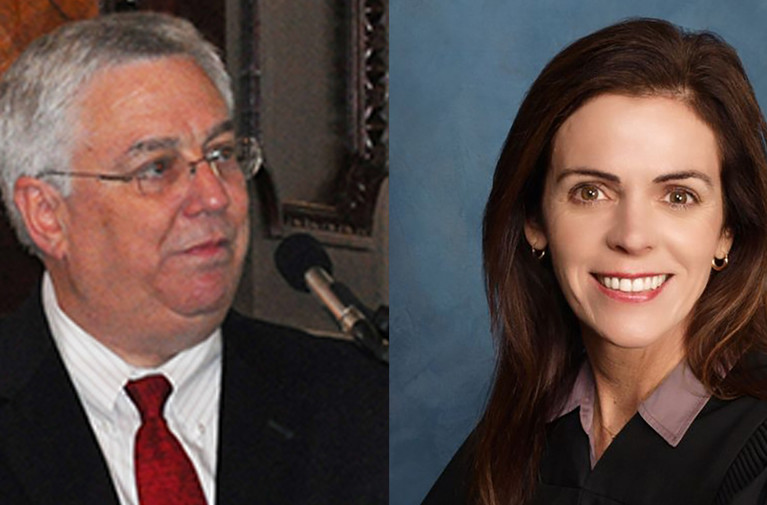New York, NY – August 28, 2025
Welcome back to Critical Mass, Law.com’s weekly briefing on the latest developments in class actions and multidistrict litigation (MDL). I’m Amanda Bronstad, your correspondent tracking the ever-evolving landscape of mass torts, consumer suits, and high-stakes legal battles. This week, we’re diving into two significant stories shaking up the plaintiffs’ bar: federal judges in separate MDLs cracking down on unfiled claims, forcing lead counsel to bring thousands of cases into the open, and a high-profile accusation of AI-generated “hallucinations” in filings by Hagens Berman Sobol Shapiro in the ongoing OnlyFans litigation. These developments highlight the growing pressures on attorneys to balance efficiency, ethics, and transparency in an increasingly tech-driven field. Let’s break it down.
Judges Demand Filing of Unfiled Claims in High-Profile MDLs
In a move that could reshape how MDLs handle inventory and discovery, two federal judges overseeing major mass tort dockets have issued orders compelling lead plaintiffs’ counsel to file thousands of unfiled claims currently sitting on the sidelines. U.S. District Judge Richard M. Gergel, presiding over the Aqueous Film-Forming Foam (AFFF) MDL in South Carolina, and U.S. District Judge M. Casey Rodgers, handling the Depo-Provera MDL in the Northern District of Florida, expressed alarm at the volume of unfiled cases and directed firms to disclose and docket them promptly.
On August 15, Judge Gergel issued Case Management Order No. 35 in the AFFF litigation (MDL No. 2873), creating a “Filing Facilitation Window” and giving plaintiffs’ counsel 21 days to file all unfiled claims. The order aims to streamline the massive docket, which involves allegations that AFFF products contaminated water supplies with “forever chemicals” like PFAS, leading to health issues. Gergel emphasized that unfiled claims hinder efficient case management and discovery, stating plaintiffs are “strongly encouraged” to docket them to avoid future complications.
Similarly, on August 22, Judge Rodgers in the Depo-Provera MDL—centered on claims that the contraceptive injection causes brain tumors—ordered lead plaintiffs’ firms to disclose the number of unfiled claims within their inventories. This follows her broader push for transparency in the docket, which has grown rapidly since its formation. Rodgers’ directive requires firms to report these cases, potentially paving the way for mandatory filings to ensure all claims are accounted for during pretrial proceedings.
These orders reflect a broader judicial frustration with “shadow inventories” in MDLs, where plaintiffs’ lawyers hold back cases to test bellwether outcomes or manage workloads. Defense attorneys have long argued that unfiled claims distort settlement negotiations and discovery burdens. “This is a wake-up call for the plaintiffs’ bar,” said one defense counsel familiar with the AFFF docket, speaking anonymously. “Judges are signaling they won’t tolerate gamesmanship that drags out litigation.” The moves could accelerate resolutions but also strain smaller firms juggling large caseloads. With over 10,000 claims in AFFF alone, the full impact may prompt appeals or influence other MDL judges to adopt similar measures.
Hagens Berman Under Fire for AI ‘Hallucinations’ in OnlyFans Class Action
In a cautionary tale about the perils of generative AI in legal practice, attorneys at Hagens Berman Sobol Shapiro have been accused of submitting briefs riddled with fabricated case citations—hallucinations generated by AI tools—in a high-profile class action against OnlyFans. The allegations surfaced in the Northern District of California during the Fenwick v. OnlyFans case, where plaintiffs claim the platform’s “chatters” (hired contractors) engaged in deceptive practices to boost subscriptions, violating RICO and state consumer laws.
U.S. District Judge William H. Orrick confronted Hagens Berman lawyers during an August 21 hearing, pointing out that multiple opposition briefs cited nonexistent cases, including a phony Ninth Circuit opinion. “These citations appear to be AI-generated hallucinations,” Orrick stated, echoing concerns from the defense team at Reed Smith. The firm admitted to using AI for drafting but insisted the errors were inadvertent, blaming inadequate human review. This isn’t the first AI mishap in courts—recall the 2023 sanctions against lawyers in New York for ChatGPT-fabricated precedents—but it spotlights growing scrutiny on tools like CoCounsel or Harvey in complex litigation.
Hagens Berman, known for aggressive consumer class actions (including the $5.6 billion Visa/Mastercard settlement), defended its use of AI as an efficiency booster but has faced calls for sanctions. “We’re committed to ethical practices and are reviewing our processes,” a firm spokesperson said. The incident has reignited debates on AI guidelines: The ABA urges “reasonable diligence” in verifying outputs, while California and New York bars are drafting specific rules. For associates relying on AI to meet billable hours, it’s a reminder that tech shortcuts can lead to courtroom disasters.
Looking Ahead
These stories underscore the dual pressures of volume and innovation in mass litigation. As judges push for transparency in MDL inventories, expect more scrutiny on unfiled claims to prevent “gaming the system.” Meanwhile, the OnlyFans AI fiasco serves as a stark warning: Technology can streamline work, but without rigorous oversight, it risks undermining credibility. Stay tuned for next week’s Critical Mass, where we’ll cover updates on the J&J talc bankruptcy and emerging trends in data privacy class actions. Have tips or thoughts? Email me at abronstad@alm.com or connect on X @abronstadlaw.
